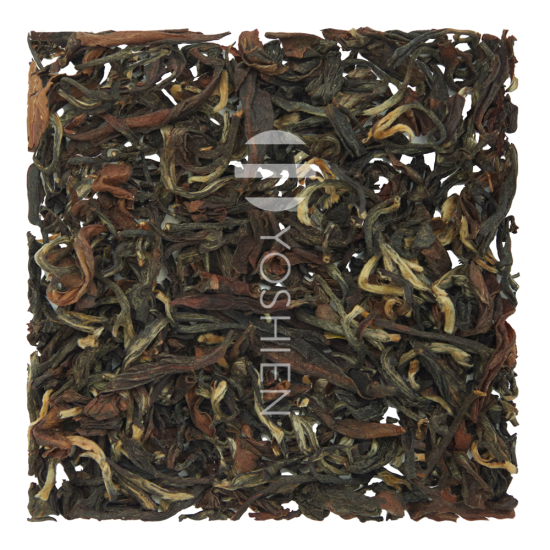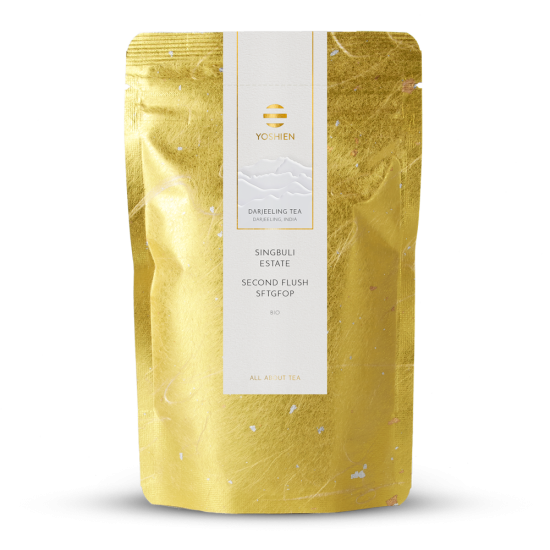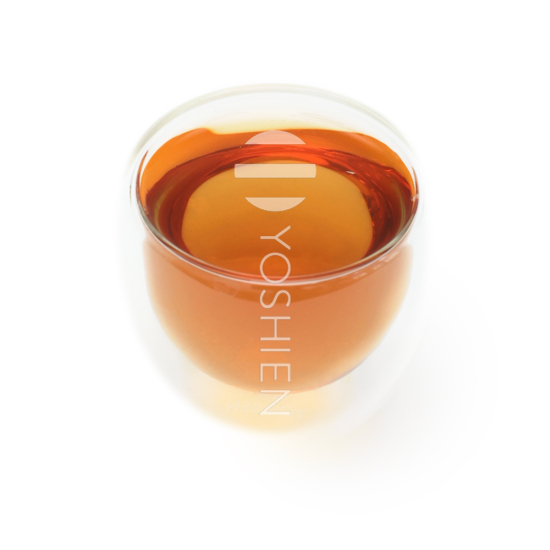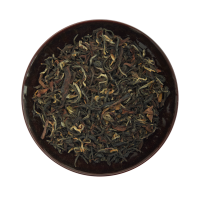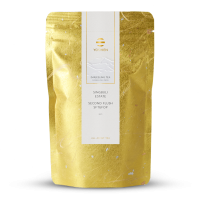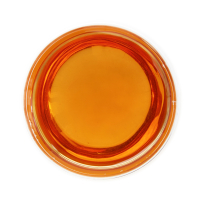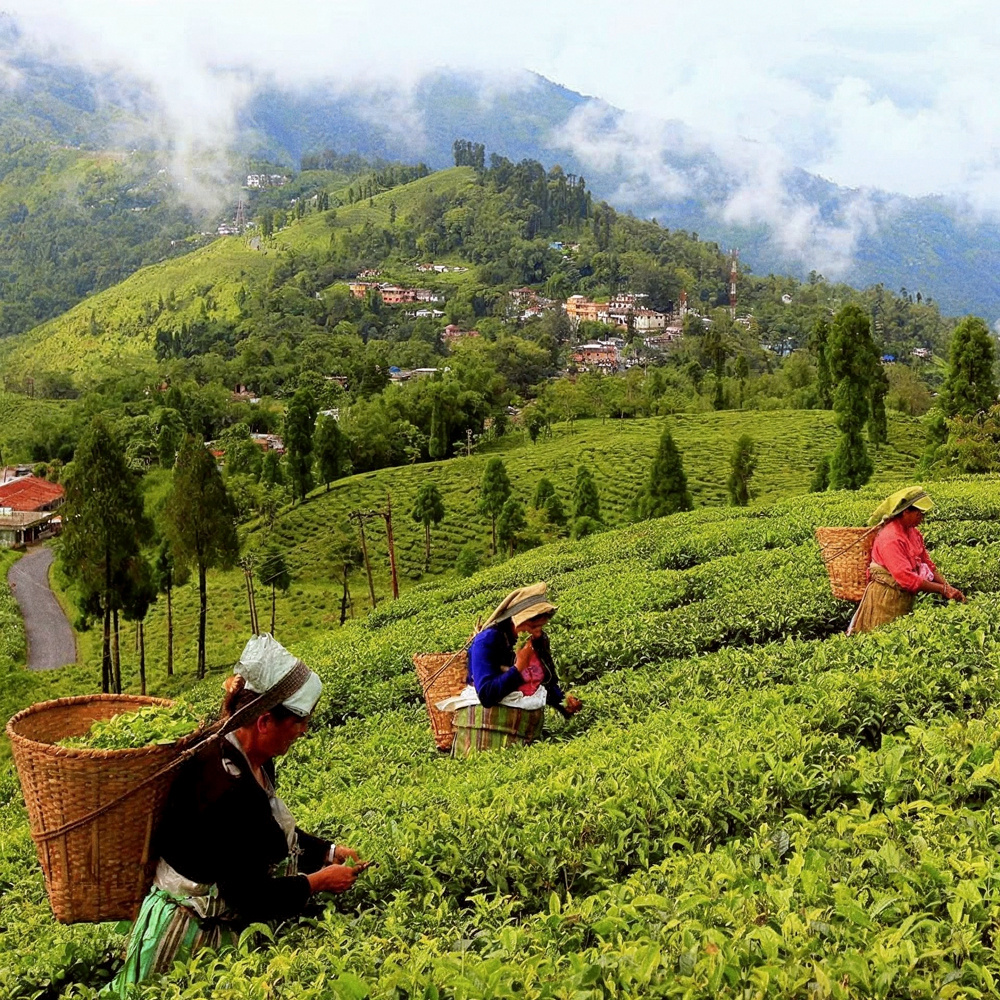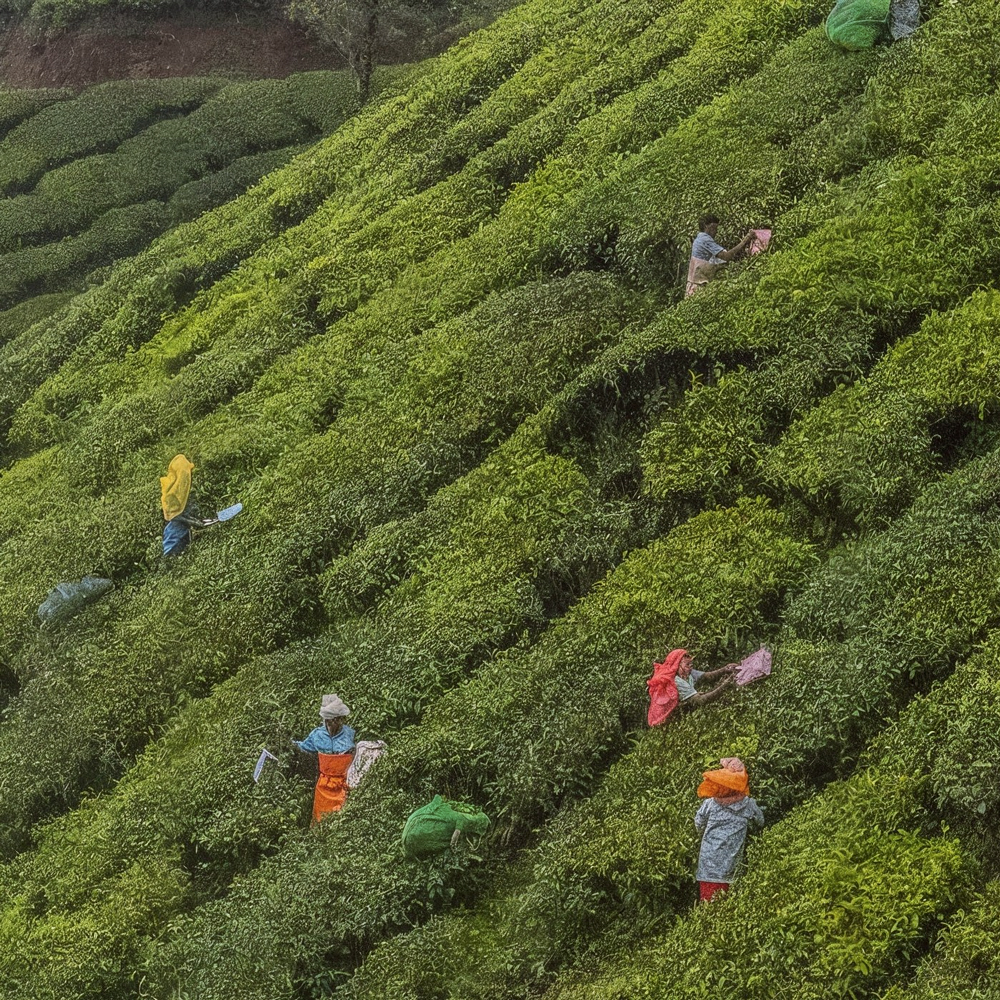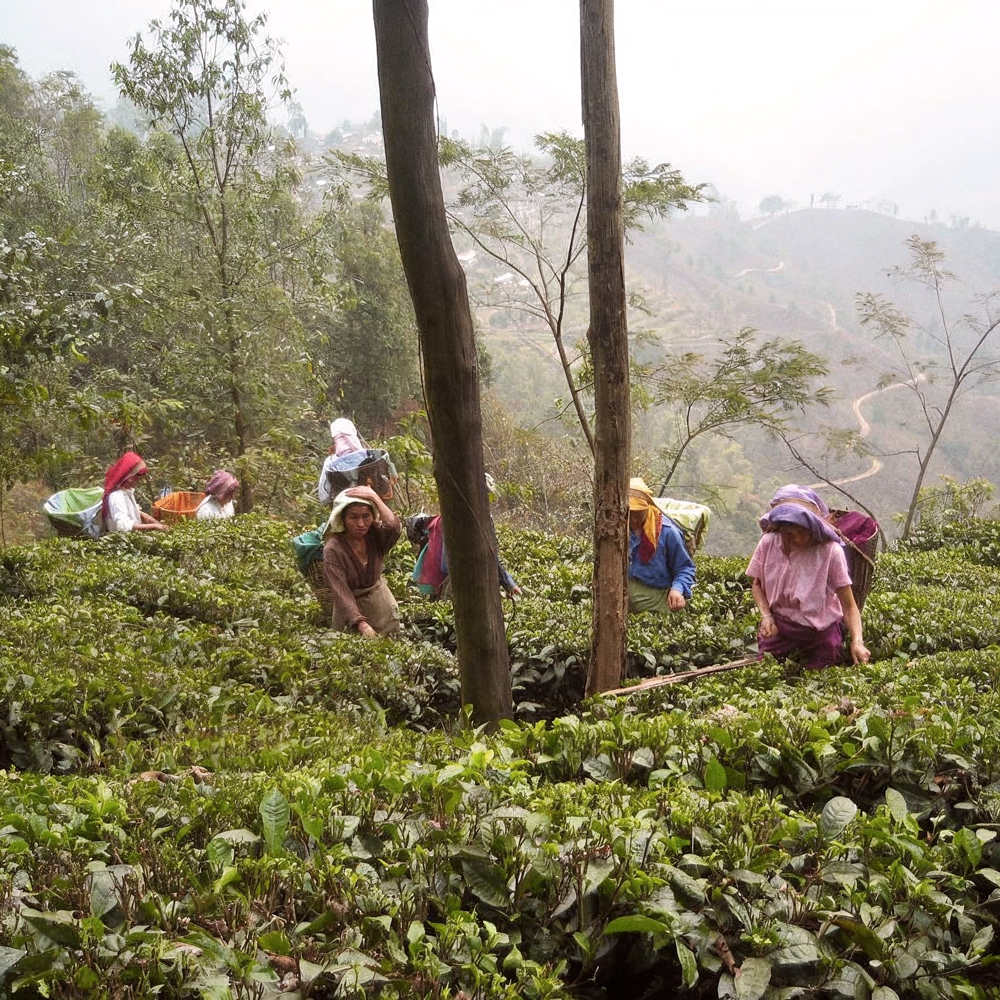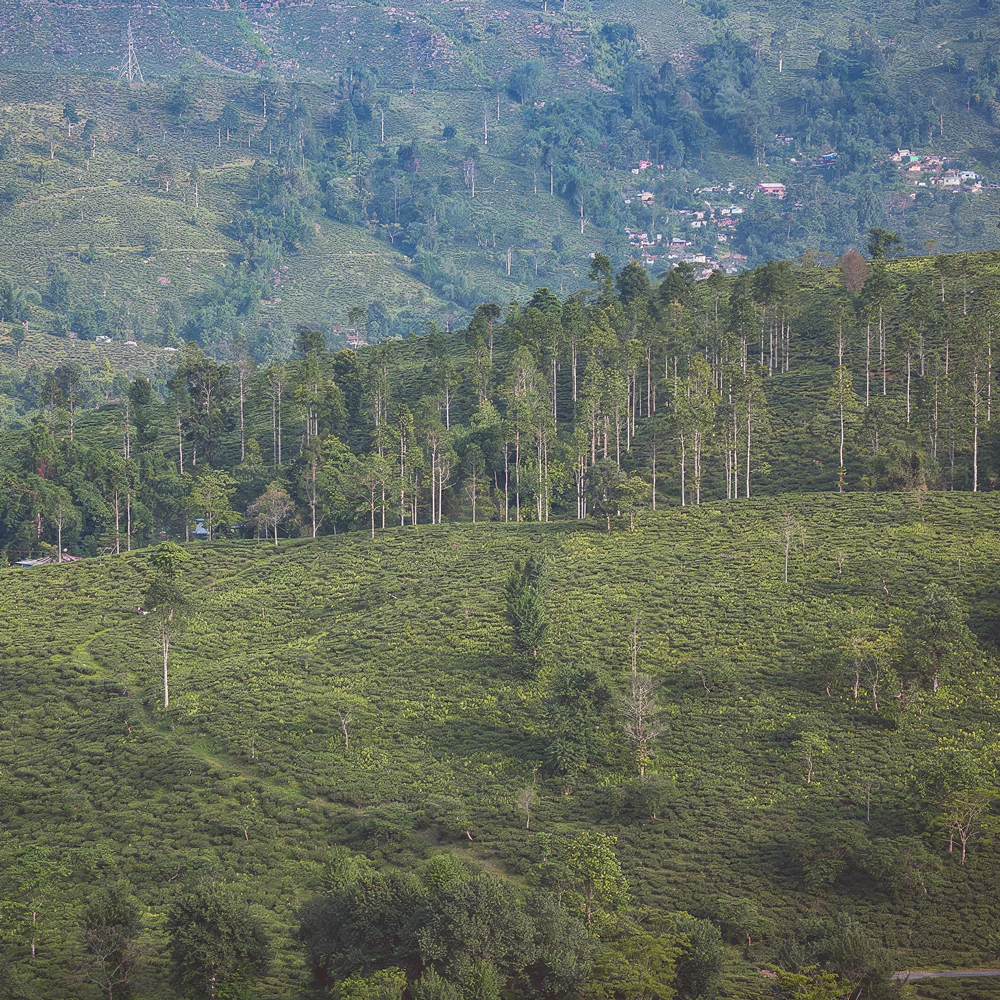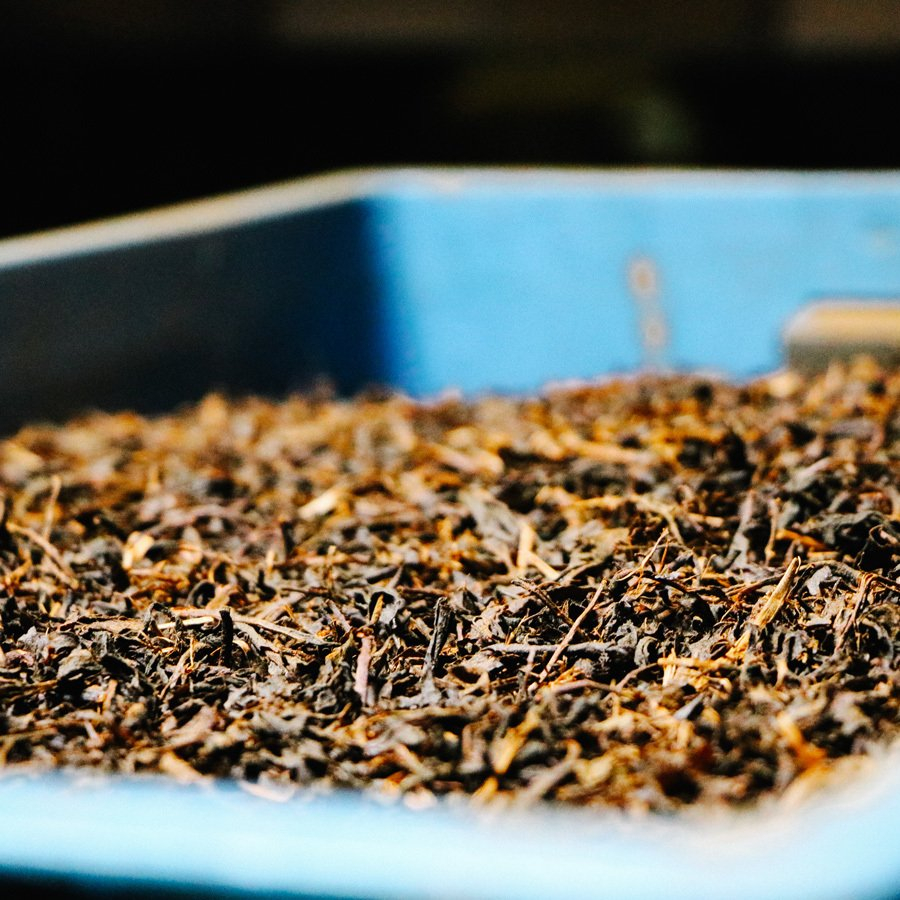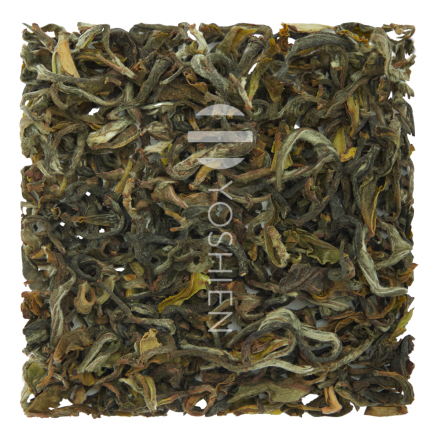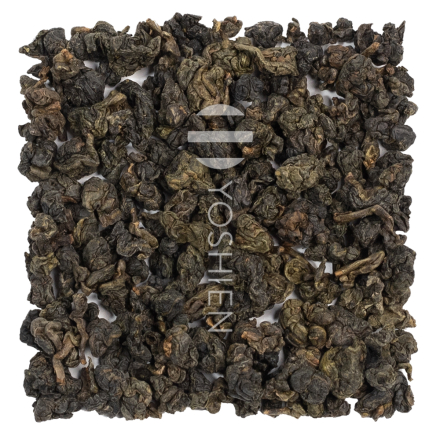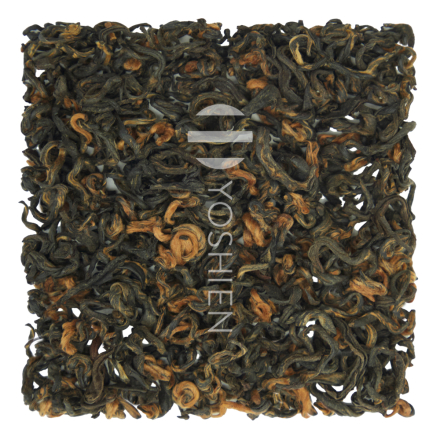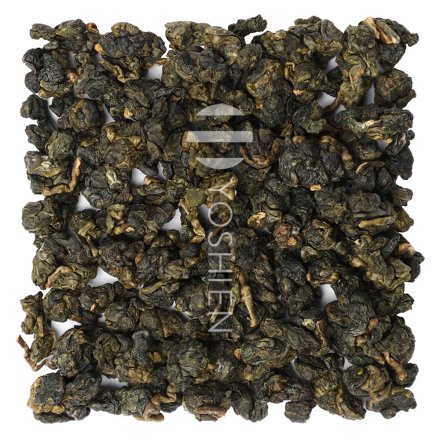Special features in location, cultivation and processing
Second flush Darjeelings differ in a few key aspects from teas of the first harvest. While first flush teas are processed particularly gently and quickly, the leaves of the summer harvest (second flush) undergo a more intensive, prolonged treatment. The aim of this different approach is to highlight the fresh, floral notes of the first flush, whereas with the second flush, the enhanced oxidation brings out the rich, fruity, and malty flavours. As with all high-quality teas, the production methods have gradually adapted over long periods to the specific characteristics of the leaf material. The special quality of the leaves from the Darjeeling summer harvest lies primarily in their rich flavour, which gains significant depth through extended oxidation.
Production of the Second Flush Singbulli
For this second flush from Singbulli, the tea leaves are carefully hand-picked in the afternoons of June and then sorted. This tea is characterised by a very high bud content. After harvesting, the moisture content of the leaves is slowly reduced during a strictly regulated, natural withering process. The producer emphasises that the withering phase for this tea is exceptionally long. The subsequent rolling and oxidation are also particularly intensive compared to other teas from this garden.
A special feature of this tea is that it is traditionally rolled by hand – a laborious process, but one that allows for precise control of the tea's intensity through direct contact with the leaves. The subsequent oxidation is of key importance: if it is too short, the tea will be mild and lacking in character; if it is too long, excessive acidity and astringency can develop, which can impair the flavour. Finally, the tea is completely dried using hot air in an oven (approximately 23 minutes) and then hand-packed into tea chests to preserve its quality and freshness as effectively as possible.
Single Origin
This tea is 100% sourced directly from the Singbulli Estate.
Organic Certification





